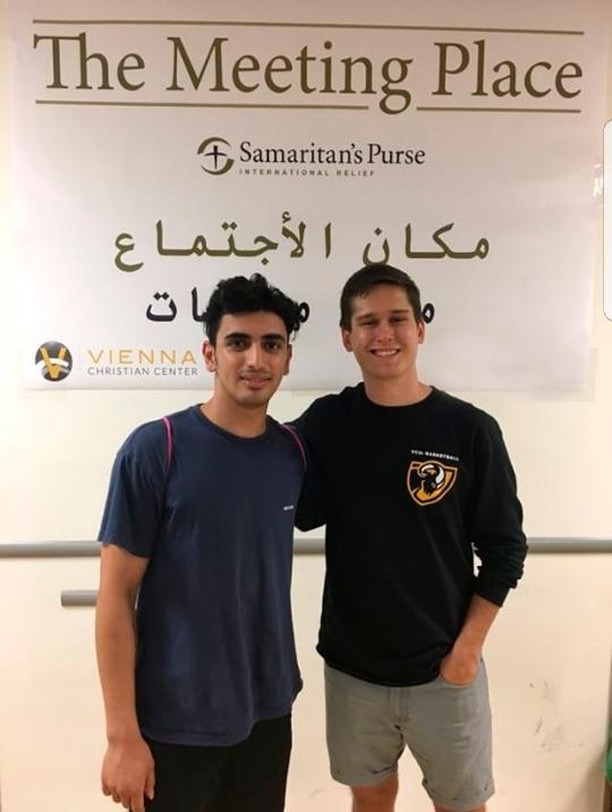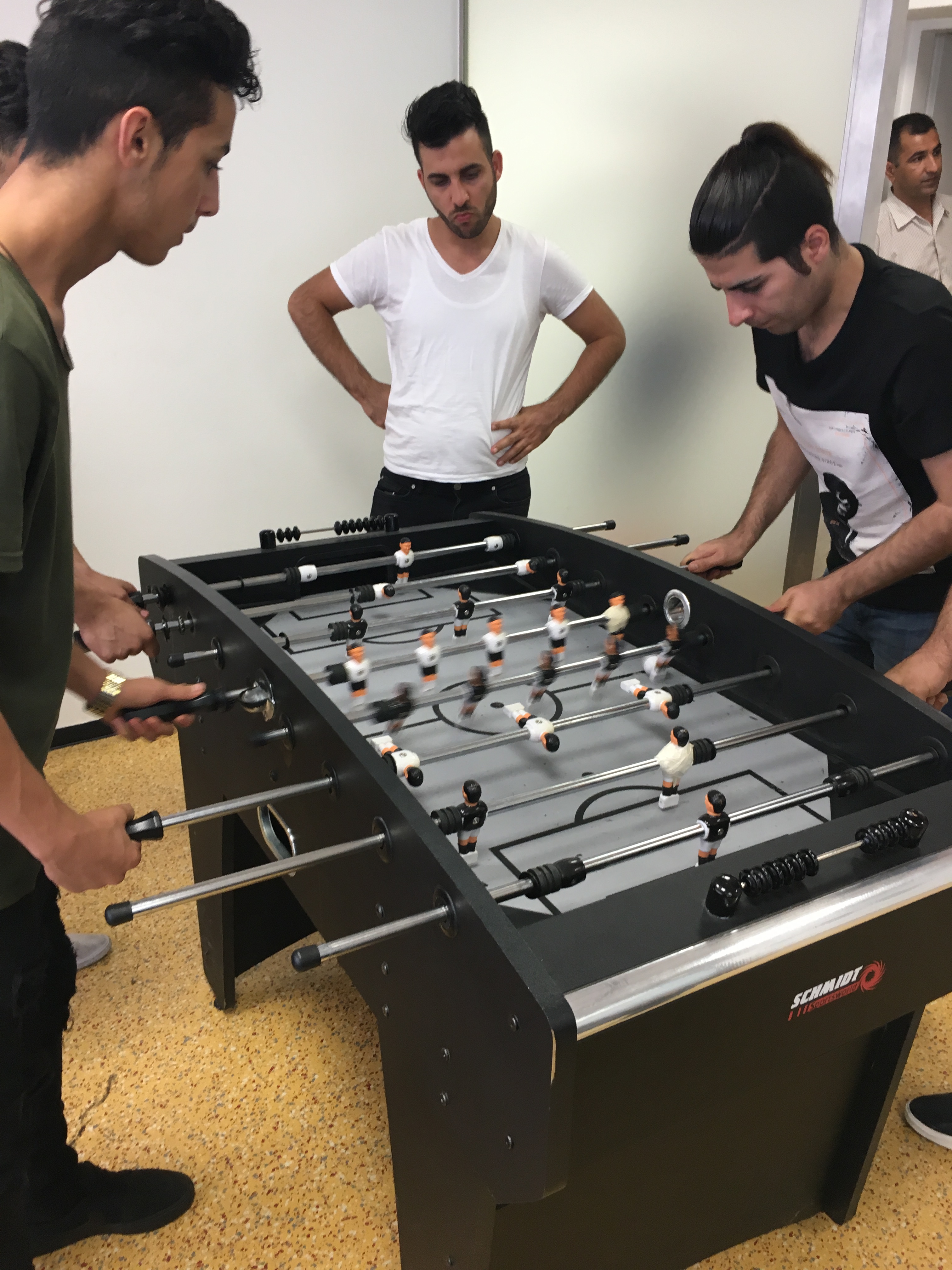February 7, 2018
Volunteering with refugees while studying abroad in Austria gave recent graduate and Benjamin A. Gilman scholarship winner Lucas Frantz, a fresh perspective on the migrant experience and his own Hispanic-American identity.
Culture within a culture

Richmond, Va. (February 7, 2018)—As a small child growing up in Bogota, Colombia, I personally experienced the impacts of war and how it creates a refugee crisis. Every day on the streets of the city I saw the number of displaced people grow as the war forced people out of their homes. My family personally experienced the widespread fear of being kidnapped since we no longer felt safe traveling outside our own city. News of bombs going off downtown, close to many of the places we frequented, filled our television screens. Lists of the fatalities these bombs left behind became a norm and I feared that one day, one of those lists could include the name of one of my family members.
Years passed, and the war ended. But it left behind in me a deep desire to use my experience of living through war to help other currently living a similar experience. When I decided to study abroad as a student at Virginia Commonwealth University, I knew I wanted to use my bachelor’s degree in global studies help people through the most difficult of circumstances. Volunteering with Middle Eastern refugees, while studying abroad, was the perfect opportunity to do that.
During my four-week study abroad program, Vienna, Austria: Language and Culture, I had the opportunity to volunteer at “The Meeting Place,” a nonprofit established to help migrants and refugees as they integrate into Austrian society. The organization, funded by the Vienna Christian Center and Samaritan’s Purse International, provides a safe space for refugees to study German, which is a requirement for foreigners to be able to live and work in Austria, and to eventually become Austrian citizens.
The majority of refugees that go to The Meeting Place come from Iran, many seeking refuge from both economic hardship and religious persecution. Each one of the individuals I met had their own unique story about crossing the Mediterranean Sea on overcrowded rafts, having no food for several days, and the constant reminder of death around them. One man told me how he had rowed for over seven hours across the Aegean Sea to reach Greece.
After I introduced myself as someone from the U.S., many refugees had questions about my life in the United States and mentioned their desire to go there someday. There were lots of preconceived ideas about the U.S. being the land of promise and opportunity where you can get rich fast, and more importantly, buy your dream car. I encouraged many with whom I spoke to visit the United States at some point, but also did my best to explain that the road to achieve these dreams aren’t always that easy.

Many teenagers as young as 16-years-old attended The Meeting Place and have been in Vienna for up to 2 years. After a few games of foosball, several of them opened up to me and shared their thoughts about living in Austria. Many mentioned how much they love living there and how much easier life is. They felt confident expressing both their religious and political views, although a common theme for many is that they deeply miss their families.
My time in Vienna was amazing. I was able to visit all the historic sites like Schonbrunn, the Belvedere, and the Hofburg. But what made this experience even more special, was being able to travel there with more than just an academic purpose. Being a part of this small community of The Meeting Place was the highlight of my trip. Not only was I able to learn about a culture other than my own, I was able to truly gain insight into a culture within a culture.
I also learned a broader lesson about my own Hispanic-American cultural identity. Many times, we as Hispanic students focus on our “home country”, but the experience of going somewhere new expands our horizons, our understanding and our opportunities. I would encourage students of any background to combine their study abroad program with volunteer opportunities that help to deepen the richness of their experience.
